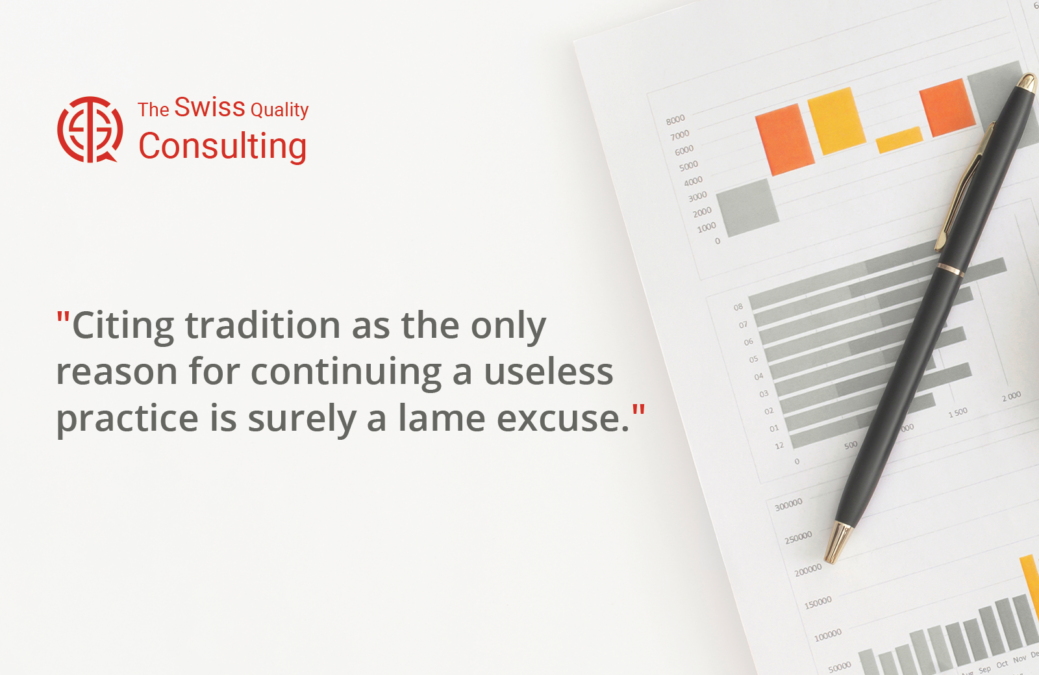Challenging Tradition: The Need for Critical Evaluation of Practices
In many aspects of life, tradition holds significant influence. It’s a cornerstone of culture, shaping the way we celebrate, eat, dress, and conduct ourselves in society. However, the mere act of citing tradition as the sole reason for continuing a practice, without evaluating its relevance or impact, is an inadequate justification. In this discussion, we will explore the importance of critical evaluation when it comes to tradition and why it’s crucial to move beyond tradition as a mere excuse for maintaining practices.
Tradition often serves as a link to our cultural heritage, connecting us to our ancestors’ customs and rituals. It can provide a sense of continuity, identity, and comfort. People take pride in upholding traditions that have been passed down through generations, as it helps maintain a sense of belonging and community.
However, the blind adherence to tradition without questioning its relevance can hinder progress and perpetuate practices that are outdated or even harmful. Just because something has been done a certain way for generations does not automatically make it the best or most efficient way of doing things.
A prime example of this can be found in the field of medicine. In the past, certain medical practices and treatments were rooted in tradition and folklore. Patients often relied on remedies passed down through generations, believing in their effectiveness based solely on tradition. However, as medical science has advanced, many of these traditional treatments have been proven ineffective or even dangerous. Here, the blind adherence to tradition without critical evaluation can have dire consequences.
Furthermore, traditions can sometimes be exclusionary or discriminatory. Practices that were acceptable in the past may no longer align with modern values of inclusivity and fairness. For instance, some traditions may have discriminated against certain groups based on gender, race, or social status. In such cases, it is essential to reevaluate these practices and adapt them to reflect more inclusive and equitable values.
The argument that “we’ve always done it this way” should not serve as the sole reason to perpetuate a practice. Instead, we should strive to understand the underlying purpose and significance of the tradition. By doing so, we can identify which aspects of a tradition are worth preserving and which need to be adapted or discarded.
Critical evaluation also allows us to evolve and grow as a society. As we gain new knowledge and insights, our values and priorities may change. This evolution necessitates a willingness to reexamine our traditions and update them to align with our current understanding and aspirations.
Moreover, innovation and progress often arise from challenging traditional practices. When we question the status quo and seek alternative solutions, we open the door to new possibilities and improvements. This is evident in various fields, from technology and science to business and education, where advancements are made by thinking beyond tradition.
Tradition is a significant part of our cultural heritage, providing a sense of identity and continuity. However, using tradition as the sole excuse for continuing a practice without critical evaluation is insufficient. It is crucial to examine the relevance, impact, and ethics of our traditions to ensure that they align with modern values and goals. Challenging tradition when necessary allows for progress, inclusivity, and a more adaptable society.
#Tradition #CriticalEvaluation #Progress #Inclusivity #Adaptation









